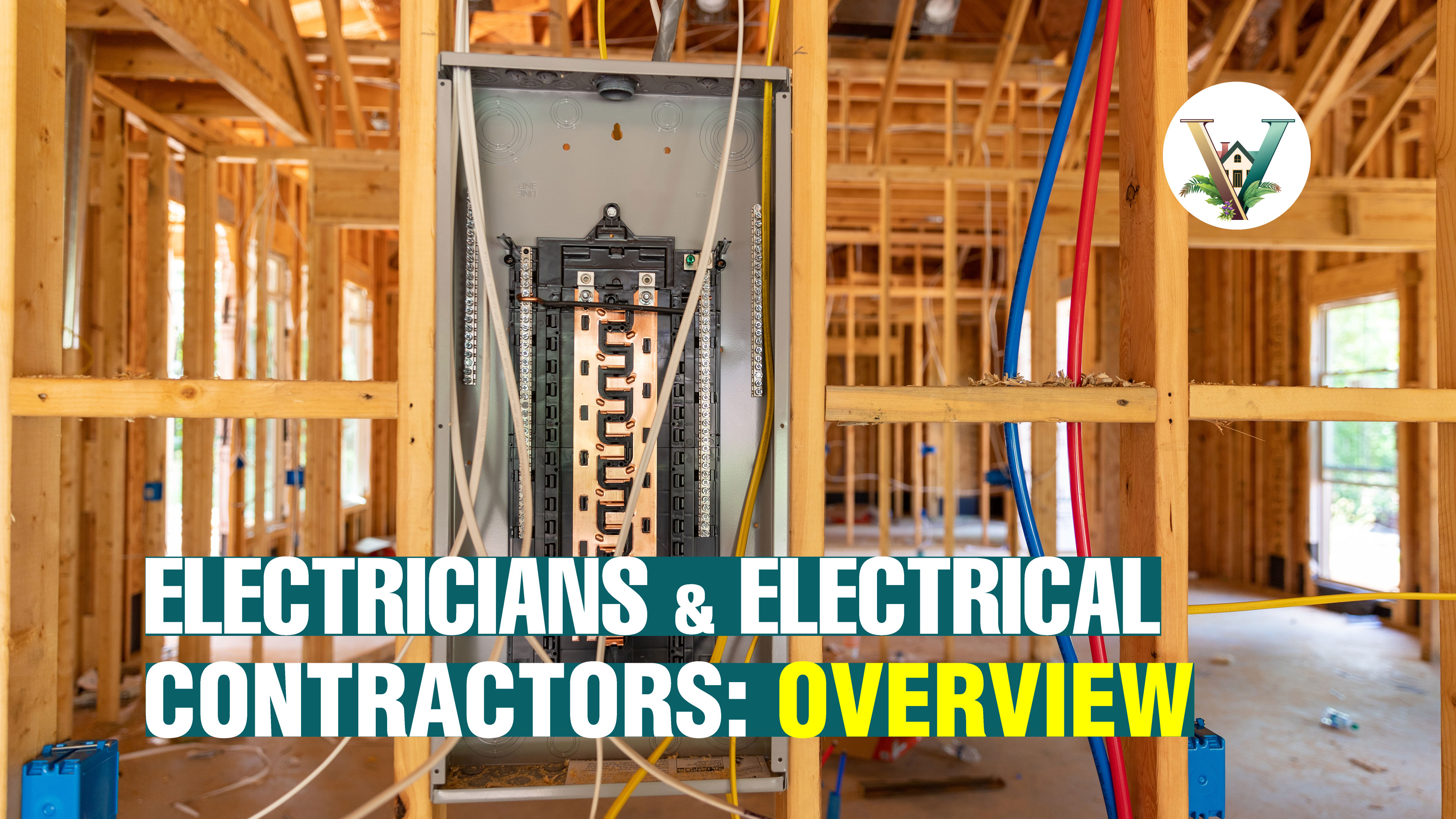Understanding Electricians and Electrical Contractors in the Residential Market
A Comprehensive Overview

The residential electrical market is a crucial component of modern living, ensuring that homes are safe, functional, and up to code. Electricians and electrical contractors play a vital role in this sector, providing essential services ranging from basic wiring and repair to complex installations and upgrades. This article offers an overview of the electricians and electrical contractors industry, focusing on their roles, qualifications, services, and key considerations for homeowners.
Electricians are skilled tradespeople who specialize in installing, maintaining, and repairing electrical systems. They are responsible for ensuring that electrical systems are safe and comply with building codes. Electricians typically work on wiring, circuit breakers, outlets, lighting, and other electrical components within a home.
Electrical Contractors are businesses or individuals licensed to perform electrical work. They often employ electricians and are responsible for managing larger projects, including new home constructions, major renovations, and upgrades to existing electrical systems. Electrical contractors may also provide inspection services and handle permits and regulatory compliance.
Electrical Contractors are businesses or individuals licensed to perform electrical work. They often employ electricians and are responsible for managing larger projects, including new home constructions, major renovations, and upgrades to existing electrical systems. Electrical contractors may also provide inspection services and handle permits and regulatory compliance.
Electricians and Electrical Contractors must undergo rigorous training and obtain proper licensing to operate legally. Here are some key qualifications:
1. Education and Apprenticeship:
Aspiring electricians typically complete a formal education program, followed by an apprenticeship under the supervision of experienced electricians. This hands-on training is crucial for developing practical skills.
2. Licensing and Certification:
Electricians must pass a licensing exam that tests their knowledge of electrical theory, local codes, and safety practices. Electrical contractors need additional licensing that often includes business and management skills.
3. Continuing Education:
The electrical industry is constantly evolving, with new technologies and regulations emerging regularly. Licensed electricians and contractors are required to engage in continuing education to stay updated on industry standards.
Electricians and electrical contractors provide a wide range of services to meet the needs of homeowners. Some of the most common services include:
1. Wiring and Rewiring:
Whether it's new construction or upgrading an older home, electricians handle the installation of wiring systems to ensure safe and reliable electricity distribution.
2. Electrical Repairs:
From fixing faulty outlets to troubleshooting electrical issues, electricians address various repair needs to maintain the safety and functionality of a home's electrical system.
3. Upgrades and Installations:
Electrical contractors often manage projects involving major upgrades, such as installing new electrical panels, upgrading to higher amp services, and setting up specialized systems like home automation or solar panels.
4. Inspections and Compliance:
Licensed electrical contractors conduct home inspections to ensure compliance with local codes and regulations. They also handle permits and documentation required for electrical work.
5. Lighting Solutions:
Electricians install and repair lighting fixtures, including energy-efficient options like LED lighting, which can enhance the aesthetics and efficiency of a home.
When hiring an electrician or electrical contractor, homeowners should consider the following factors to ensure they receive quality service:
1. Licensing and Insurance:
Always verify that the electrician or contractor is licensed and insured. This protects homeowners from liability in case of accidents or damage during the project.
2. Experience and Reputation:
Look for professionals with a proven track record and positive customer reviews. Experience in handling similar projects is a good indicator of reliability and expertise.
3. Cost Estimates:
Obtain multiple quotes to compare prices and services. Be wary of unusually low estimates, as they may indicate subpar work or hidden costs.
4. Safety and Compliance:
Ensure that the electrician follows all safety protocols and complies with local codes. This is crucial for preventing hazards and ensuring the longevity of the electrical system.
5. Warranty and Guarantees:
Reputable electricians and contractors often provide warranties or guarantees on their work. This offers peace of mind and assurance of quality.
The residential electrical market is poised for growth, driven by advancements in technology and increasing demand for energy-efficient solutions. Trends such as smart home systems, renewable energy installations, and electric vehicle charging stations are shaping the future of electrical services. Electricians and electrical contractors will continue to play a pivotal role in integrating these technologies into homes, enhancing both convenience and sustainability.
In conclusion, electricians and electrical contractors are indispensable in maintaining and improving the electrical systems of residential properties. By understanding their roles, qualifications, and services, homeowners can make informed decisions when seeking professional electrical assistance, ensuring safety, compliance, and optimal performance of their home's electrical infrastructure.
ARTICLE INFO
By VanGuardist
Date: July 30, 2024
Date: July 30, 2024

